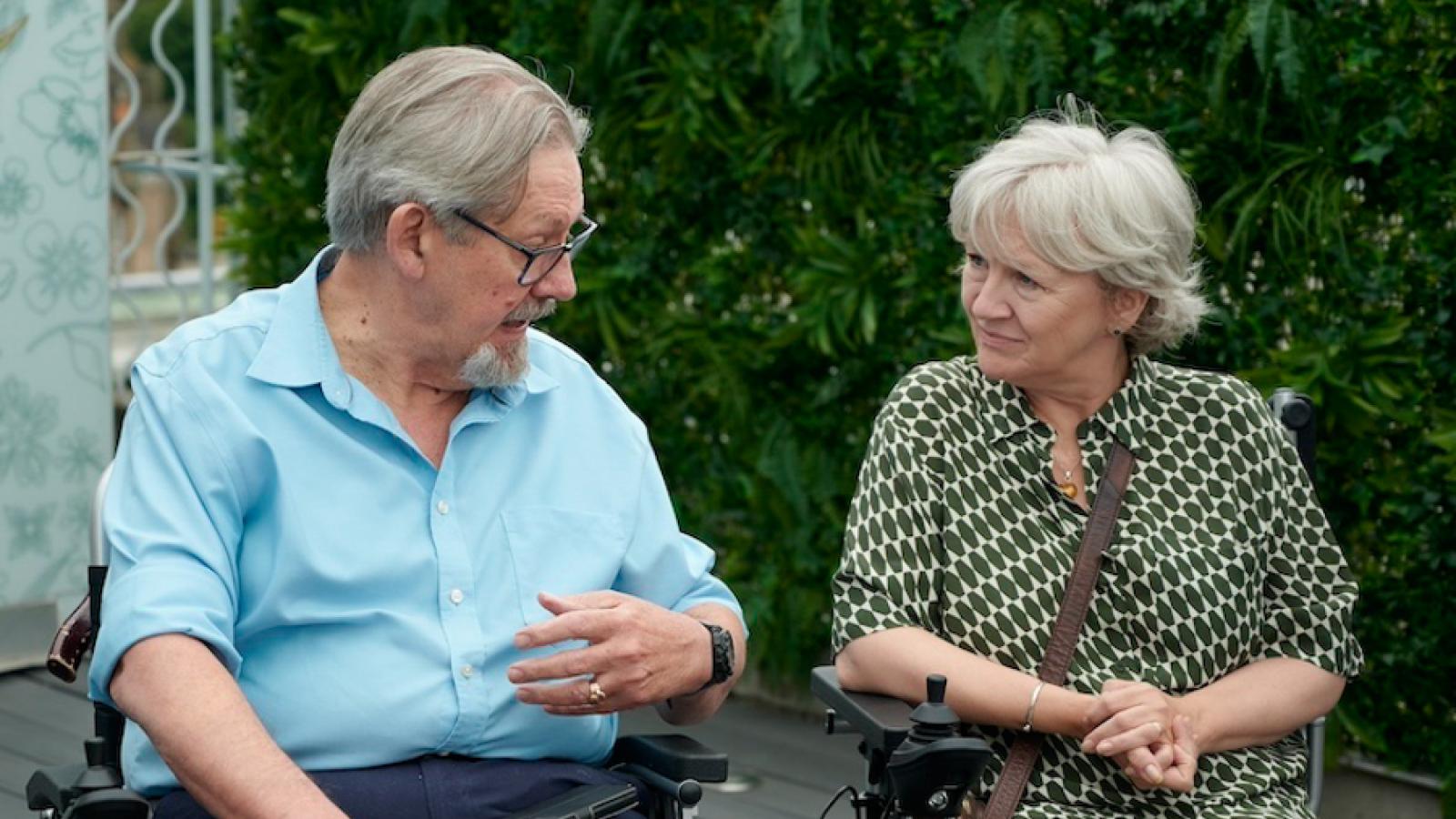The first results from the innovative platform trial, MND-SMART, have been published in the journal The Lancet Neurology today. Led by Prof Siddharthan Chandran (UK DRI Director), Prof Suvankar Pal (UK DRI Co-Investigator) and the Euan MacDonald Centre for Motor Neuron Disease Research at the University of Edinburgh, the trial aims to significantly speed up delivery of new treatments for motor neuron disease (MND).
The first treatments tested in the trial, memantine and trazodone, are already approved for use in other conditions: memantine for Alzheimer’s, and trazodone for depression. Over 500 people with MND participated in the trial, and were given either one of the two drugs, or a placebo, and followed up for at least 18 months. Neither drug tested was found to improve outcomes in people with MND, compared to placebo. This means the drugs are ineffective, and have been discontinued from the trial.
The unique design and scale of MND-SMART has allowed investigators to obtain conclusive results within just over three years of the launch of the trial. If individual trials had taken place for each treatment, the researchers estimate the two results would have taken a minimum of eight years to report.
Through MND-SMART, we have halved the time taken to conclusively test two drugs, showing the trial is doing exactly what it set out to.
Director & CEO
Prof Suvankar Pal explained:
“MND-SMART has delivered multiple levels of innovation since we launched in 2020. Despite the impact of the COVID-19 pandemic, we have set up new infrastructure across all 4 UK nations as part of this major platform study, and tested the first two drugs far quicker than would have been possible in a conventional trial.
"Testing of a third treatment has been underway since 2023, and we will start testing a fourth imminently. Working closely alongside people living with MND we have co-produced an inclusive protocol, and schedule of remote and in-person assessments that allows long-term follow up with high quality data and less drop out than previous trials”
People living with MND and their families were also heavily engaged in the trial design, encouraging wide inclusion criteria, remote assessments, and couriering of drugs to participant’s homes.
MND-SMART participant Steven Barrett OBE said:
“The multi-arm nature of MND-SMART significantly increases the level of hope I have, that we should all have, that ground could be broken in the struggle to find a treatment option which prevents, stops, or cures this disease. It has provided me personally, with an emotional lifejacket to hold onto, that such an outcome could happen during my lifetime. More than any other support mechanism I have access to, this trial is the one which sustains me most.”
In contrast to typical clinical trials testing a single treatment, MND-SMART evaluates multiple treatments simultaneously in a multi-arm, multi-stage adaptive platform. Participants undergoing different treatments are compared with a single group receiving a placebo. This innovative approach increases the likelihood of participants receiving an active treatment, as well as allowing adjustments to be made in real time, in response to emerging results.
The trial is initially focused on repurposing drugs already licensed for other conditions, reducing the risk of adverse effects. This also means that if a treatment is shown to be effective in the trial, some of the lengthy approval processes required before patients can access new drugs could be avoided.
Prof Siddharthan Chandran said:
“There is an urgent need for new treatments for people affected by MND. Through MND-SMART, we have halved the time taken to conclusively test two drugs, showing the trial is doing exactly what it set out to. Momentum is gathering, and I am hopeful that this approach will, in time, deliver effective, disease-modifying treatments for people with MND.”
The drugs were selected through an unbiased review of all published research studies in MND and other neurodegenerative conditions. Once a shortlist of therapies had been produced, a panel of experts carefully reviewed the shortlisted drugs to decide which to take forward into the trial. A UK DRI project launched in 2023, funded by LifeArc, is building on this process, using a machine-learning, artificial intelligence approach to review published studies. Identified compounds are then tested in cell and animal models before they are put forward into the trial.
MND-SMART is now testing amantadine, a licensed drug currently used in the UK for the treatment of Parkinson’s, and fatigue in multiple sclerosis. Visit the MND-SMART website to find out more.
Reference: Suvankar Pal et al., (2024) Safety and efficacy of memantine and trazodone versus placebo for motor neuron disease (MND SMART): stage two interim analysis from the first cycle of a phase 3, multiarm, multistage, randomised, adaptive platform trial. Lancet Neurology. https://doi.org/10.1016/S1474-...
Banner image: MND-SMART gathering, credit: Maverick Photo Agency

